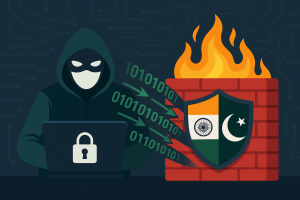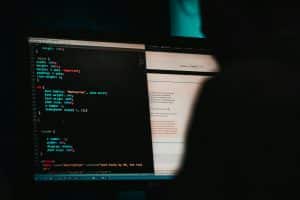How I Learned Cybersecurity and Ethical Hacking: My Journey and Tips for Beginners
Cybersecurity and ethical hacking have become buzzwords in today’s digital age. With increasing threats online, the demand for skilled professionals in this field is skyrocketing. If you’re in India and wondering how to start your journey, you’re in the right place. Here’s how I learned cybersecurity and ethical hacking, and how you can do it too!
1. My Journey Into Cybersecurity
Like many in India, my fascination with computers began early. Initially, I was just curious about how websites and apps worked. Over time, I came across stories of hackers who found vulnerabilities and helped make the internet safer. That’s when I realized I wanted to become an ethical hacker.
Early Steps:
- Learning Basics of Networking: I started by understanding how the internet works. This included concepts like IP addresses, DNS, and HTTP protocols.
- Experimenting with Tools: Tools like Wireshark and Nmap became my playground. These helped me understand how data flows and how systems communicate.
- Understanding Operating Systems: I spent hours tinkering with Linux, as it’s a foundational skill for any ethical hacker.
2. Resources That Helped Me Learn
India has a wealth of online and offline resources for cybersecurity enthusiasts. Here are some that guided my journey:
- Online Platforms:
- Cybrary and Hack The Box: Great for practical, hands-on experience.
- Warnhack: This platform offers CTF (Capture the Flag) challenges, certifications, and video courses tailored for Indian learners.
- YouTube: Channels like NetworkChuck and The Cyber Mentor were goldmines of information.
- Books:
- “The Web Application Hacker’s Handbook” – A must-read for web application security.
- “Hacking: The Art of Exploitation” – Helped me understand the hacker mindset.
- Certifications:
- I pursued Certified Ethical Hacker (CEH), a great starting point for beginners.
- For advanced knowledge, I recommend Offensive Security Certified Professional (OSCP).
3. Practical Experience: The Game Changer
Theory can only take you so far; practical experience is what truly matters in cybersecurity.
- CTF Competitions: Participating in CTF challenges helped me test my skills in a real-world scenario.
- Bug Bounty Hunting: Platforms like HackerOne and Bugcrowd allowed me to find vulnerabilities in applications and get rewarded.
- Building My Lab: I set up a home lab using tools like VirtualBox and Kali Linux to practice.
4. Challenges I Faced (And How I Overcame Them)
- Information Overload: There’s so much to learn in cybersecurity that it can be overwhelming. I broke it down into smaller topics and focused on one skill at a time.
- Limited Guidance: Initially, I didn’t know anyone in this field. Joining online communities like Reddit’s r/netsec and attending Indian cybersecurity events bridged this gap.
- Lack of Practical Opportunities: I created opportunities by starting small freelance gigs and helping friends secure their websites.
5. Tips for Indian Learners
- Focus on Basics: Learn networking and operating systems first. Without this foundation, advanced topics will feel confusing.
- Leverage Free Resources: India has many free learning platforms. Websites like GeeksforGeeks and Udemy often have affordable courses tailored for Indian users.
- Stay Updated: Cybersecurity evolves quickly. Follow Indian cybersecurity blogs, government advisories, and platforms like CERT-In.
- Contribute to the Community: Join Indian cybersecurity forums and Telegram groups. Sharing knowledge and learning from others accelerates growth.
6. Why Ethical Hacking Is a Great Career in India
India is becoming a hub for cybersecurity jobs. With the rise of digital payments and startups, organizations need ethical hackers to secure their systems. According to recent reports, ethical hacking roles in India pay between ₹5-15 lakhs per year for entry-level positions.
Additionally, Indian government initiatives like Digital India are opening doors for cybersecurity enthusiasts. Whether you want to work for top MNCs, government agencies, or freelance as a bug bounty hunter, the opportunities are endless.
7. My Advice to You
- Start small but stay consistent.
- Never stop learning. Cybersecurity is not a one-time course but a lifelong journey.
- Practice daily. Use platforms like Warnhack, Hack The Box, and CTFd to sharpen your skills.
Conclusion
Learning cybersecurity and ethical hacking is not just about tools and certifications; it’s about curiosity and the drive to solve problems. Whether you’re in a metro city like Bangalore or a small town in India, opportunities are everywhere if you’re willing to learn.
So, are you ready to start your journey into the world of cybersecurity? Let me know in the comments or share your experiences!





